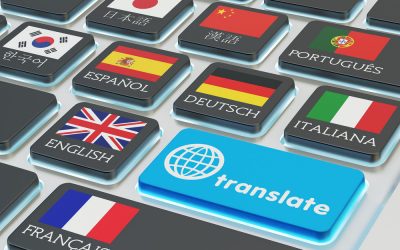It’s not your imagination – it’s much harder for most children and adults with dyslexia to learn long words – and it has nothing to do with intelligence. The sneaky reason is that for most dyslexic people, learning a random sequence of sounds puts more demands on those phonological processing pathways in the brain that once made it hard to learn to read. It’s good to be aware of this difficulty and also know that it has no relationship to things like creative insight or problem solving ability, which might be sky high. It does mean that for certain subjects – like science vocabulary, geography place names, long people and place names in literature, and foreign languages, extra care and time may be necessary to […]
Surviving College: Gifted Dyslexic Students Share Tips [Premium]
When we had a clinic, some of the best study strategy advice came through talking to our gifted students…especially as we saw them over the course of years. Recently, I noticed a research paper by Reis et al. in Gifted Child Quarterly that had a number of great student insights that I thought would be fun to share. The first surprise I had reading the paper was to learn how many students had wished they had been formally taught study skills. Some were downright critical of the work they had done in LD pullouts in high school. “I will complain to this day about high school and how they don’t teach study skills…This is the first time in my freshman year that I had to […]
“LIKE” Terms in Algebra Don’t Let Words Get in the Way
Many students get confused about “like” terms in Math, but it’s not their fault. The terminology is confusing. Purple Math has a nice page on this post. In Algebra, “like terms” refers to terms that have the exact same variable raised to the same power. WATCH YOUTUBE VIDEO HERE: “What are Like Terms” Like many things for math and dyslexic students, the key is to provide students with an unambiguous definition of the word “like” in this context. Afterwards, the math problem solving parts are easy. Some students save screenshots of definitions from the Illustrated Math Dictionary (like the one below) so that they can review definitions and examples at review time.
Dyslexics Better at Landscape Memory
In a recent issue of the journal, Dyslexia, there’s an interesting little paper entitled The Effect of Landscape Photograph Type on Aesthetic Judgements, Attention, and Memory of Children with Dyslexia. Interestingly, “both groups recognized all photograph types at a high rate after the short retention interval, but after the long interval, the children with dyslexia had better memory, especially for combined (natural and man-made objects) photographs.” The researchers also cited findings from an earlier study by another group (Wang et al., 2013) that found that dyslexic students tended to pay closer attention to “unique visual stimuli (e.g. the shape of a hand, compared with the shape of a circle). Specifically they found that the children with dyslexia showed significant efficiency for selective attention for the […]
Falling in Love with Film: Steven Spielberg [Premium]
https://youtu.be/KB8D29S3wMc “Most of my life has been spent in the dark watching movies. Movies have been the literature of my life. The literature of Irving Thalberg’s generation was books and plays. They read the great words of great minds. And I think in our romance with technology and our excitement at exploring all the possibilities of film and video, we’ve partially lost something that we now have to reclaim. I think it’s time to renew our romance with the word… only a generation of readers will spawn a generation of writers.” It may surprise some readers to learn that so many dyslexic people fall in love with words and stories, but it’s much more common than people think -all this despite the ways that words […]
How an SLP Helped a Dyslexic College Student Fulfill Her Foreign Language Requirement [Premium]
“Kay’s German language instructor referred her for a reading disabilities evaluation because of numerous difficulties that Kay experienced in spite of her high level of motivation to succeed…” – The Role of the SLP in Assisting College Students with Dyslexia in Fulfilling Foreign Language Requirements: A Case Study For many dyslexic students in higher education, unforeseen roadblocks like having to pass two semesters of a foreign language can cause costly delays in the awarding of their degrees. While some institutions grant waivers, others do not, and universities and colleges vary widely regarding their disability support. From the case report of what seems to be a gifted dyslexic student at the University of Florida, there are several helpful practices that I thought would be helpful to […]
Learning Doubles to Boost Math Facts Fluency
Learning doubles math facts can help with number flexibility. After learning how to count and “count on“, doubles may be the next skill to learn. Origo Education has a nice post about how to introduce and practice doubling facts with students. First, students look for doubles in nature (see some ideas below). Next, students can practice doubling in pairs, where one student holds up fingers, the other mirrors, and both try to say the double the quickest. For students who need more time, working with double dominoes or dominoes sheets can build familiarity with doubles math facts. A nice free resources for learning math facts can be found HERE from Bill Hanlon After learning and mastering double facts, then doubles + 1 or doubles – […]
Dyslexic Advantage in Translation
We received inquiries about Dysexic Advantage from India and Italy. Our book The Dyslexic Advantage is now translated into Spanish, Chinese (coming), Japanese (coming), Korean, Polish, and Dutch, but also our ENTIRE DyslexicAdvantage.org website can be...
Founder of Alaska Alchemy Orthotics & Prosthetics
“I wouldn’t have made it through school if it wasn’t for shop class.” – Wil Sundberg, Owner Alchemy Orthotics & Prosthetics I first learned about Wil Sunderland in a news article about Alaska’s struggles to identify dyslexic students. Wil is founder of Alchemy Orthotics and Prosthetics. As I learned more about his company, I was impressed by how he had infused his business with a lot of creativity and empathy, put together with a lot of spatial talent.
When it comes to arms and legs, every one is different, and differences aren’t just related to anatomy and structure – how we walk, run, reach and grab, and everything else needs to go into the design of a good orthotic or prosthetic.Q & A: Map Testing
Across the United States, millions of K-12 school children take the NWEA MAP or Measures of Academic Progress tests. Using a computerized adaptive test it assesses math and reading in the early grades, and language usage and science for older students. By having students take the exams in the fall, winter, and sprint, schools can see if a student is showing progress in his or her classroom. Q: My child hasn’t been formally identified as being dyslexic, but struggles in reading. How can MAP testing help my student? MAP tests are intended to inform schools and districts about how a student is progressing in regard to specific skills, like reading, in class. The test is adaptive, so pre-readers will be tested with picture-based questions like […]
READING WITH COMICS
“Dyslexics like myself can’t learn anything without a narrative to hold on to. Why am I being given this information? What does it do? What is it relevant to? What similar thing should I store it next to in my head?” – Jay Stringer, Book Riot Jay Stringer has a a great post on Dyslexia and Comics and they are good reminders that for many, the gateway to reading for pleasure is a plot that hooks you, intriguing characters, and graphics that pair well with text. Now, we’ve talked about wordless picture books before – they definitely can be amazing and stimulate a love for books, but comics also have their place for many children and adults, and that’s what Jay captures in his post: […]
Reversals and How to Help [Premium]
“The ability to recognize objects from various view-points has advantages in perceiving one’s environment, allowing one to identify a potential threat from many different views…(however) this trait of the object recognition system is disadvantageous for reading….” Blackburne et al., 2014 MIT When neuroscientists used neurophysiological techniques to study brain-based correlates of letter reversals, they were surprised to find how slowly children’s brains matured into the final adult pattern. Even when children were no longer writing letters backwards, their brains hadn’t matured to final “adult” pattern. Most researchers working in the area of reversals believe the letter reversal issue is related to how to recognize objects from different perspectives. We can recognize our friend if we’re standing right in front of them, to the side, at […]

![Sneaky Ways to Help with the Dyslexia-Related Long Word Challenges [Premium]](https://www.dyslexicadvantage.org/wp-content/uploads/2020/04/long-words.jpg)
![Surviving College: Gifted Dyslexic Students Share Tips [Premium]](https://www.dyslexicadvantage.org/wp-content/uploads/2017/11/writingcollege-scaled.jpg)


![Falling in Love with Film: Steven Spielberg [Premium]](https://www.dyslexicadvantage.org/wp-content/uploads/2020/04/Screen-Shot-2023-01-13-at-3.39.01-PM.png)
![How an SLP Helped a Dyslexic College Student Fulfill Her Foreign Language Requirement [Premium]](https://www.dyslexicadvantage.org/wp-content/uploads/2020/03/PREMIUM-How-an-SLP-Helped-a-Dyslexic-College-Student-Fulfill-Her-Foreign-language-Requirement-400x250.png)





![Reversals and How to Help [Premium]](https://www.dyslexicadvantage.org/wp-content/uploads/2020/02/reversals-400x250.png)













